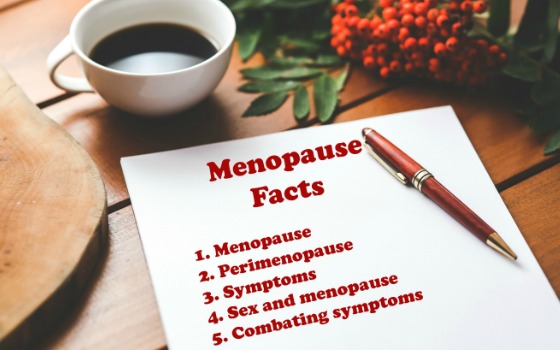 It’s an age-old dilemma. Your friend is moving across town to a larger apartment. She’s excited, and you’re excited for her. Then she asks, “Can you help me move next Saturday?” Your heart freezes, your brain stops working and your mouth runs dry. You want to tell her no, but you don’t want to hurt her feelings. I mean, she’s your friend, right? It’s just what friends do.
It’s an age-old dilemma. Your friend is moving across town to a larger apartment. She’s excited, and you’re excited for her. Then she asks, “Can you help me move next Saturday?” Your heart freezes, your brain stops working and your mouth runs dry. You want to tell her no, but you don’t want to hurt her feelings. I mean, she’s your friend, right? It’s just what friends do.
Or what about when it’s 5:59 pm and you’re all packed up and ready to leave the office. Your daughter is the goalie on her high school’s soccer team and the big semi-final match starts in 45 minutes. Your boss comes out of her office and gives you the look – the one that says “leaving so soon?!?” She asks if you could stay an extra hour to help her pull together a presentation she forgot she needed to have ready in the morning. Bad planning and all.
So, what do you do? You hem and haw, stammer and sweat like you just ran a marathon until you finally crumble under the weight of your own guilt. “Well, I was gonna take my cat to get a pedicure, but I guess I can.” Well just damn. And you don’t even own a cat.
Why Can’t You Just Say No?
“No” is a big word. It can sucker punch a 300-pound man and take him down in no time flat. Yet when it comes to saying it, it’s difficult to form our lips to speak the word. I’ll be honest, whenever I would say “no,” it had to come with a long, drawn-out explanation. And why? Saying “no” is associated with feeling guilty. It’s an inherent part of the mindset. We don’t want to disappoint people. We don’t want to hurt anyone’s feelings. We don’t want to be seen as the bad guy. But guilt is an emotion you show when you’ve done something wrong. You didn’t do anything wrong by saying no.
Let me repeat that: Guilt is an emotion you show when you’ve done something wrong, and you haven’t done anything wrong by saying no.
Compliance is baked into us. We’ve been programmed to think about others before ourselves. Why are we tiptoeing around, walking on eggshells, and stuffing our “nos” in our mouth in favor of pleasing others?
But what will Jennifer think? Oh gosh, Jason’s gonna hate me now. I bet Daphne won’t invite me to her party now. And there we go…off and running to the races. Our minds go directly to the negative outcome. But seriously, is it that serious? That’s misplaced guilt talking. Once you get past that hurdle of guilt, you might be able to view your “no” differently.
What About What We Want?
We’ve dealt with what others want. But what about what we want? Saying no is a well-choreographed dance that we learned the steps to years ago. Why else would we be holding onto it? Isn’t it time we learned a few new steps?
I get it: saying no is hard. Really hard. It’s a powerful word. But stay with me on this one here: it’s not really about the “no,” is it? I mean, if we took away the fear of saying no, what are we left with? Putting ourselves first. Standing up for ourselves. Loving ourselves enough to do what we want to do. Embracing our boundaries.
But still…there’s just that one word.
Don’t beat around the bush. If a “no” is forming at the back of your mouth, let it out. That doesn’t mean you have to shout it, say it aggressively or with force, or be mean about. But say it like you believe it. When the situation supports it, say “no” with kindness. Yes, there will be a bit of disappointment, but do you really think your friend will unfriend just because you said no to picking her up from the airport?
Is Saying “No” the Right Thing to Say?

Is it a “Yes” or is it a “No”?
How do you know when it’s right to say “no”? Sometimes you need to have a come-to-Jesus moment with yourself to get clarity on what you really want and need. There can be consequences to our “yes” and “nos” that, while insignificant now, could blossom into something huge. Almost every decision you make in life requires a trade-off. Are you ready for that? Take a quick gut-check and ask yourself:
- Am I comfortable with what’s being asked of me?
- Do I have other commitments?
- Is this somewhere I really want to go?
- Is this something I really want to do?
- Do I have the time for this?
- Will I have the energy to do this?
- Is the person asking someone who respects me? Does he/she support me when I need it?
- Does this align with my values?
- Is this an opportunity for growth?
- What’s the ultimate price for saying “yes?”
- What’s at stake?
- Am I the only person who can do this?
- Will saying “yes” hurt me in any way?
- Do I care about the person asking me for this?
- Is saying “yes” in my best interests?
- Am I being taken advantage of?
- What’s my heart telling me to do?
Of course, there are times when you say “yes” and you genuinely mean it. But in those moments when you hesitate, think to yourself, “I don’t want to do this,” and you say “yes” anyway are the moments you’re hurting yourself.
A Few Things to Remember
- It’s okay to say “no.” Understand that you can’t do everything and you can’t be all things to all people. The more you say “yes” when it doesn’t feel right to you, the more you’re taking away from your valuable time.
- Don’t show any fear when saying “no.” You can say it without sounding like you’re about to burst into tears. Your show of strength is your show of conviction.
- You don’t owe anyone anything. Your allegiance is to yourself. Remember that.
- Even when you say “no,” they’ll get over it. And life moves on.
- There’s nothing wrong with putting yourself first for a change.
- Don’t let anyone bully you into saying “yes.” Bullies like to challenge, so the more you say “no,” it’s likely that they’ll continue to badger you. Stand your ground.
- When you set those boundaries and don’t allow anyone to cross over them, you’re showing respect for yourself and, sooner or later, others will respect you for it, too.
I came across this Tiktok video where Glo Armmer (@gloarrmer) perfectly exemplifies saying “no” without guilt or justification. Examine her. Study her. Emulate her.
When you say “no,” there’s no need for you to offer explanations as to why you came to that decision. When you say, “No, I can’t tonight,” “No, I’m not able to pick you up,” or “No, I won’t be able to work late tonight,” that should be good enough for anyone who respects and values you as a person. Remember, you can’t please everyone….
But you can please yourself.





Ohmyword, I SO wish I had this advice YEARS ago! I remember my Husby standing me in front of a mirror and commanding me to practice saying the word ‘NO’. Ugh. The guilt!!!
Loved this, Valerie!
Diane, I just remember all the times I said “yes” to please people. No more. And I hope no more for you, too! Thanks for kicking off the conversation.
Most of the time I have no trouble saying no, or giving a polite “white lie” to get out of something. The friend moving might be harder to say no to more than the boss who wants something at the last minute. But even the best “no” person can something get into a crunch. Two good examples.
That’s so true, Laurie. I can be difficult saying “no,” especially to people in authority. But when we practice not being available every time some one asks or saying “no” when it’s something that doesn’t align with our spirit, it gets easer. Thanks for commentiing.
This used to be so hard for me, but I now remember that whatever I say yes to means I’m saying no to something else, and is that really what I want.
Saying “no” to something means saying “yes” to something else (spending time with the kids, going on vacation, you time, etc.). Thanks for joining the conversation, Shari.
I was a chronic “yes” person. Now that I’m post 60 I’m working on saying “no” more often without the guilt. As my former coach said, “No is a full sentence.”
Isn’t it amazing, Judy, how we get stuck in the trap of saying “yes” even when we don’t want to? And yes indeed, “No,” is one of the shortest sentences in the English language. We should learn to speak it with conviction.